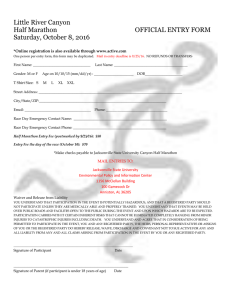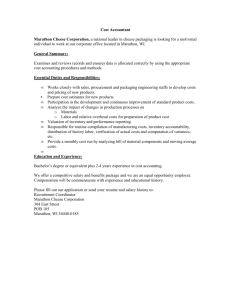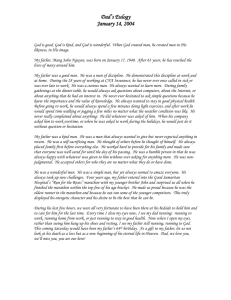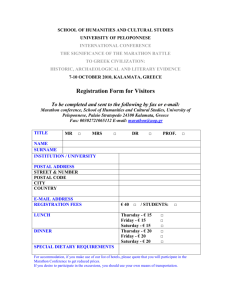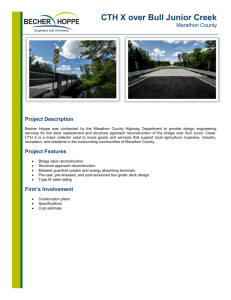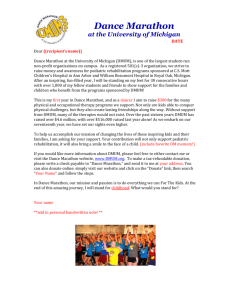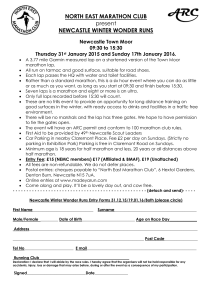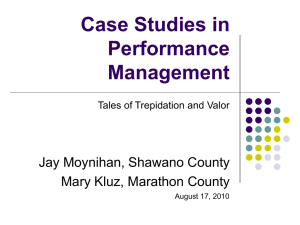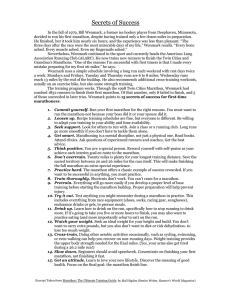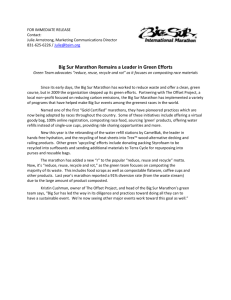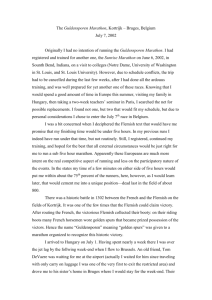Writing Marathon
advertisement
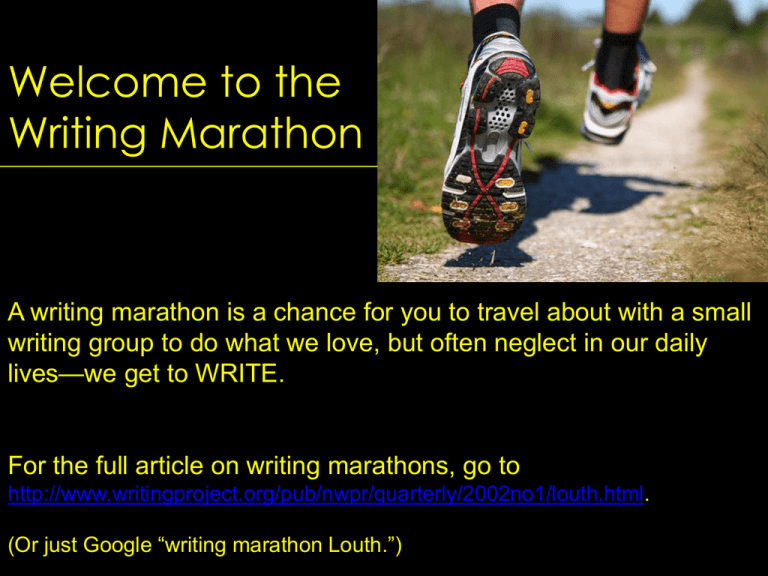
Welcome to the Writing Marathon A writing marathon is a chance for you to travel about with a small writing group to do what we love, but often neglect in our daily lives—we get to WRITE. For the full article on writing marathons, go to http://www.writingproject.org/pub/nwpr/quarterly/2002no1/louth.html. (Or just Google “writing marathon Louth.”) Why? “How many of us, as teachers, can live the writer’s life? For me, the writing marathon was my first taste of what it would really feel like to be a writer. It was the very first moment I ever thought, ‘Damn, I am a writer.’” --Beth Calloway, 1996 Warming Up All good marathons begin with some warm-ups and stretching. We’ll do three short prompts, each in a style that can be repeated today out in “the field,” because… Morrill Hall: The worker paused for a short break. He climbed off the machine, and in the rubble, he saw…. Philip Levine and Capturing Moments, Paraphrased from p. 40 of that book Who do you love and what do you want to remember about them? Put down details, things you might easily forget as the years pass. The way they smile shyly, as if afraid of showing all their teeth. The way they smell. The little kindnesses they do. Capture a recent moment you want to remember, like Levine did with “What Work Is.” The Thing Poem, Paraphrased from p. 29 of that book Observe an object or living thing using all of your senses. Try free-writing your sensations and impressions when doing so, either one sense at a time or all at once using alternating periods of observation and freewriting. Draft a poem that integrates many aspects of both the subject and the sensations it creates for you. After detailing the object fairly objectively, allow the poem to leap inward toward whatever lies waiting to be discovered there. The details may begin to suggest meaning. Nuts & Bolts •Form a marathon writing group of 3-5 people. •Decide where to go first. •Decide on lengths of writing times. Usually, the early sessions are shorter (10 minutes or so) and they get longer as the day goes on (30 minutes or so). •After each writing period, have a read around with no response. Why no response? Natalie Goldberg’s advice about writing and sharing during the marathon: Everyone in the group agrees to commit himself or herself for the full time. Then we make up a schedule. For example, a tenminute writing session, another ten-minute session, a fifteenminute session, two twenty-minutes sessions, and then we finish with a half-hour round of writing. So for the first sessions, we all write for ten minutes and then go around the room and read what we’ve written with no comments by anyone…A pause naturally happens after each reader, but we do not say “That was great” or even “I know what you mean.” There is no good or bad, no praise or criticism. We read what we have written and go on to the next person…. What usually happens is you stop thinking: you write; you become less and less self-conscious. Everyone is in the same boat, and because no comments are made, you feel freer and freer to write anything you want. Other Assorted Rules •If you go into a restaurant or bar, be sure to order something. •If anyone asks, tell them you are a writer. •Keep in mind that you are doing this for yourself and for nobody else. Today you have the luxury of time to write. Enjoy it!
